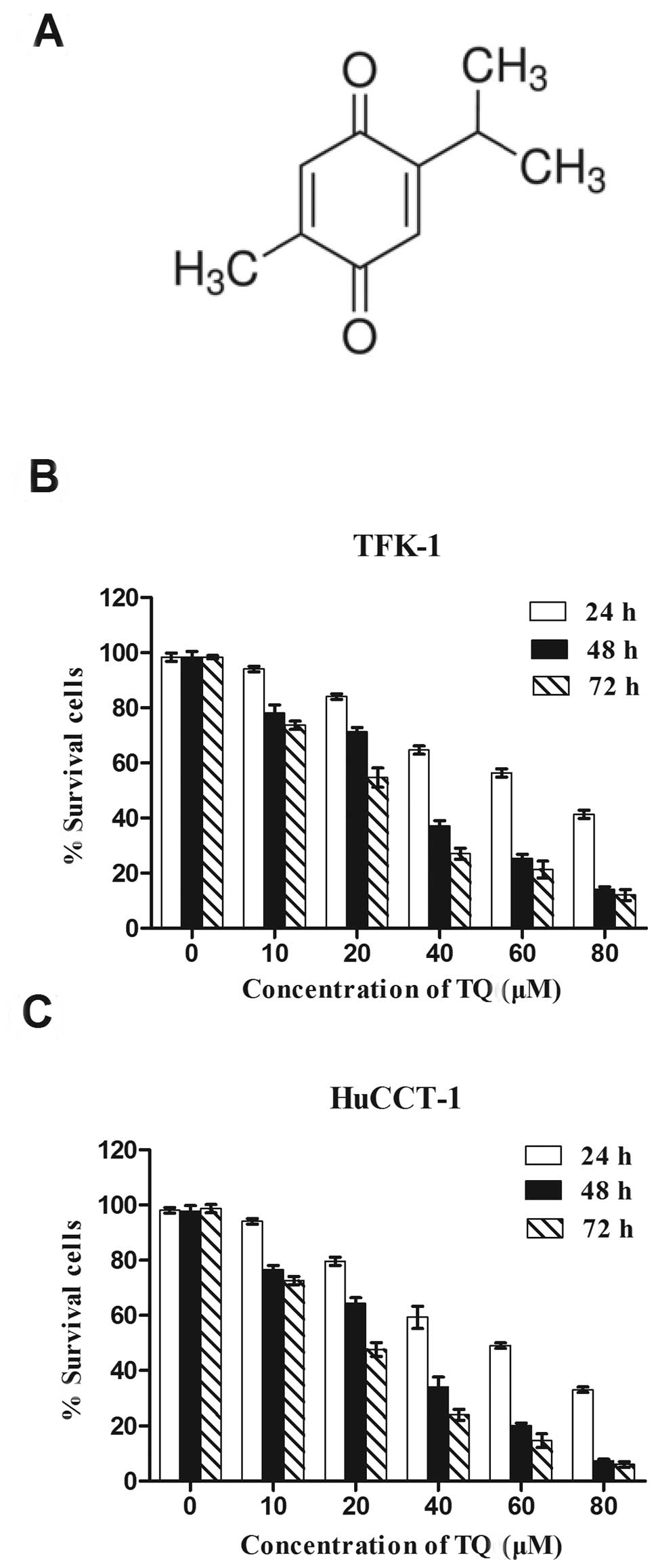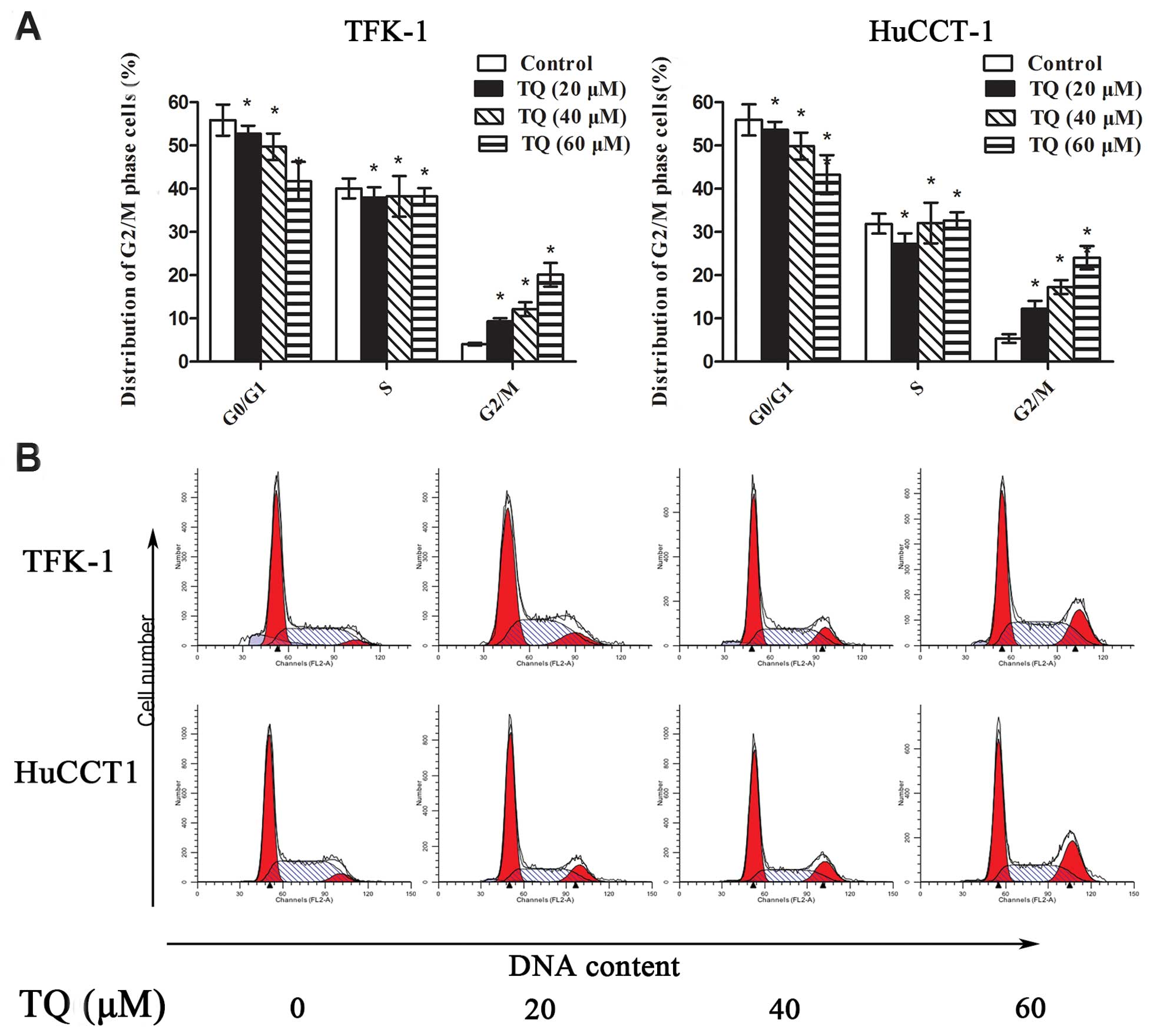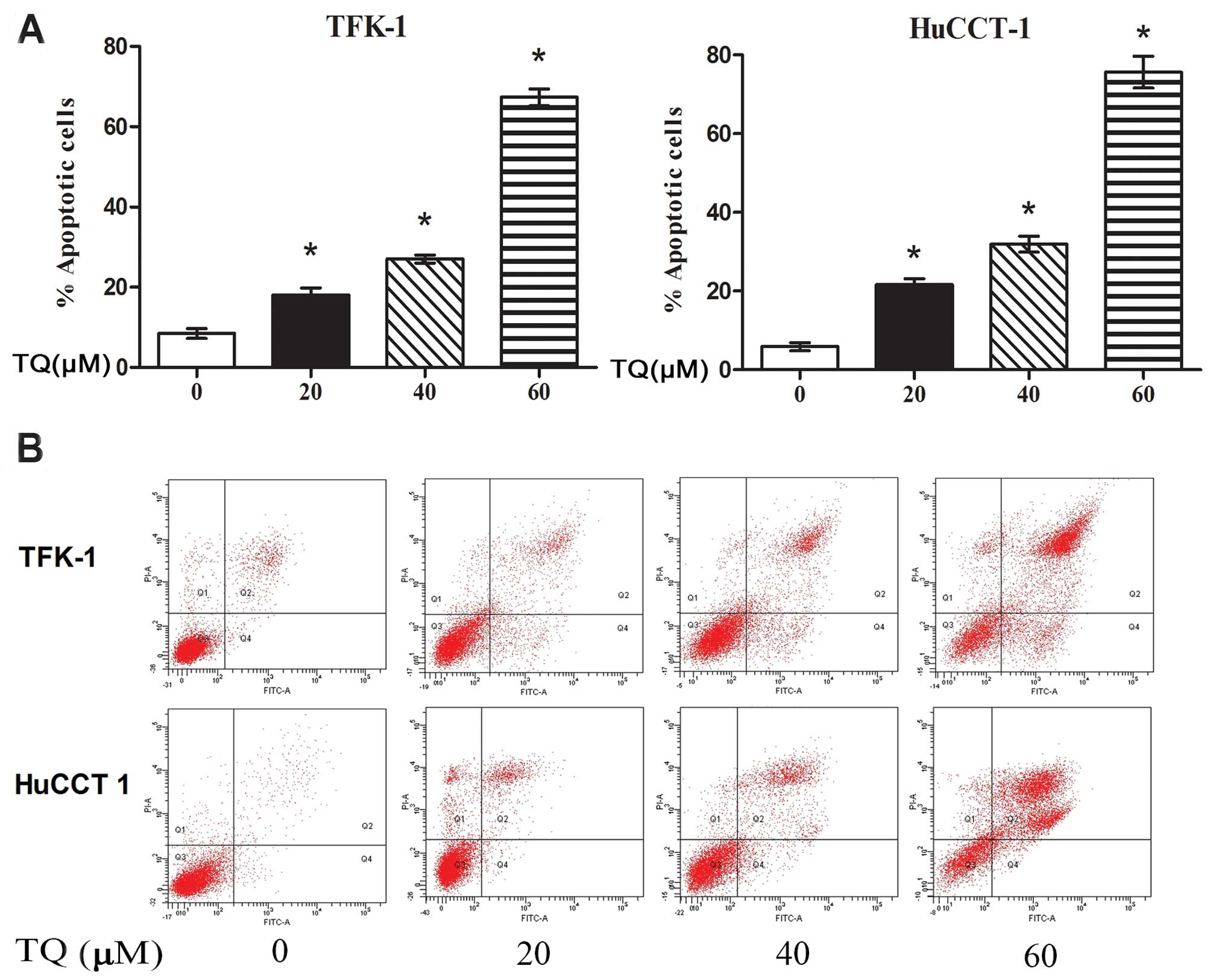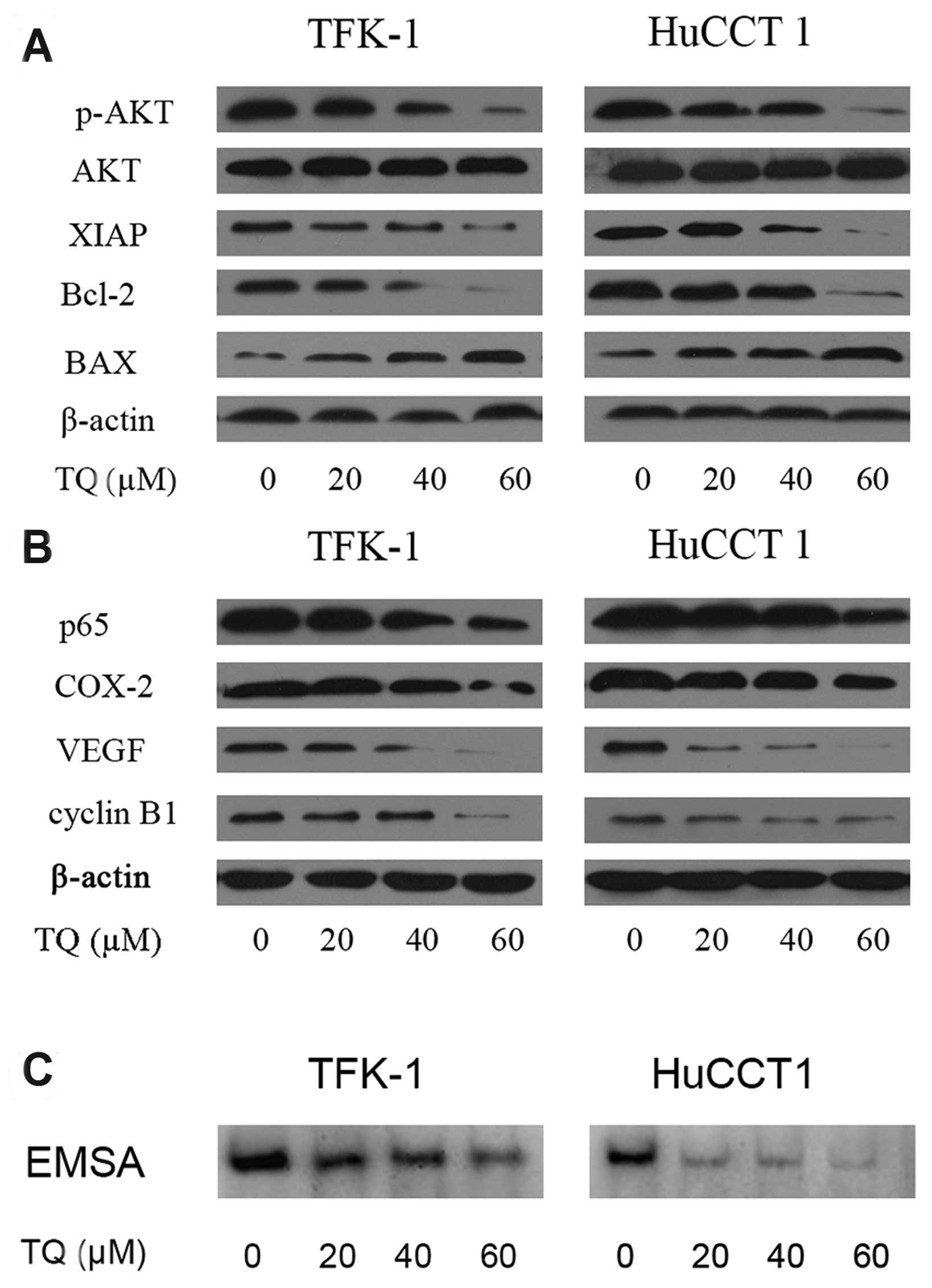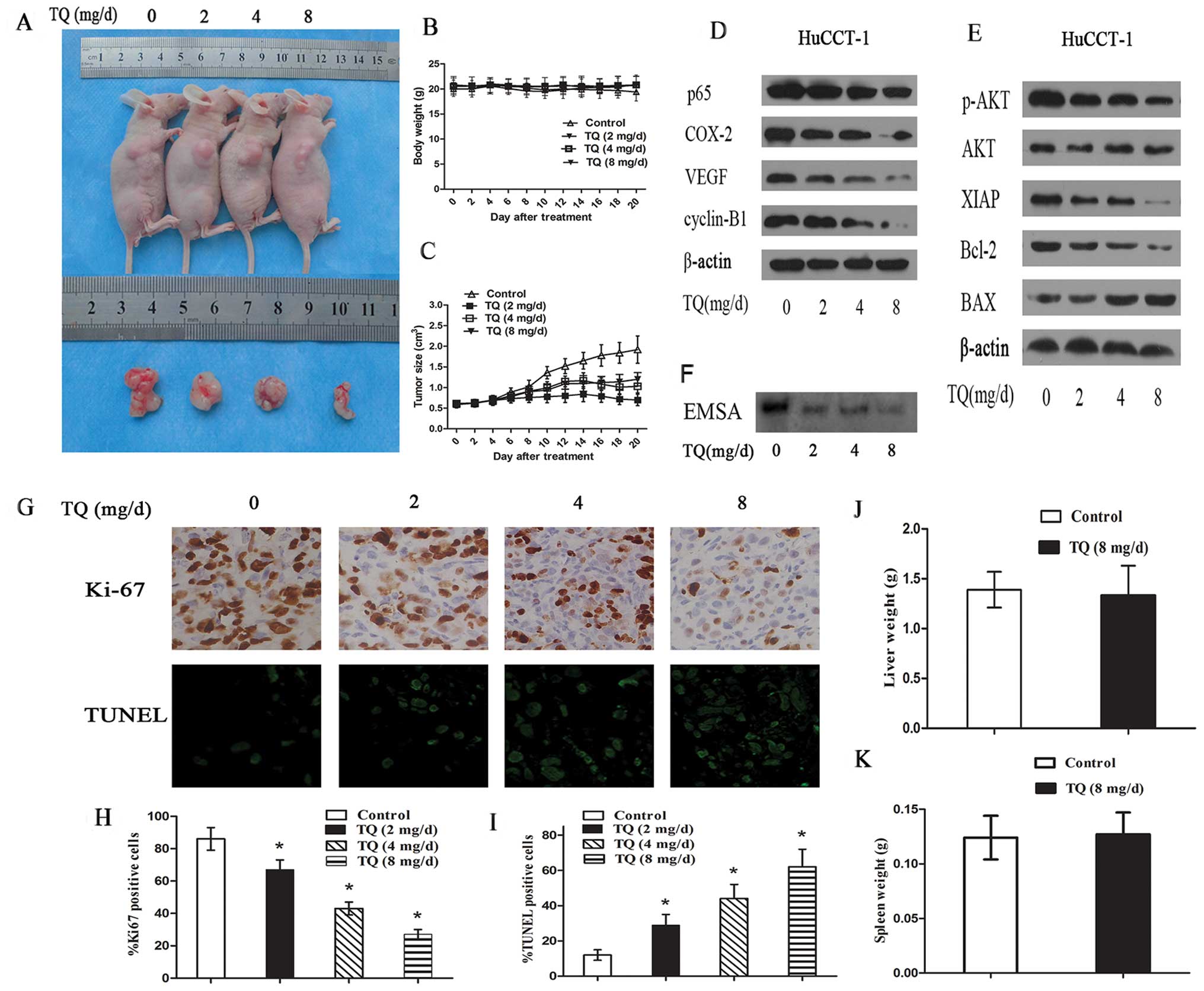|
1
|
Ramírez-Merino N, Aix SP and Cortés-Funes
H: Chemotherapy for cholangiocarcinoma: an update. World J
Gastrointest Oncol. 5:171–176. 2013.
|
|
2
|
Patel T: Cholangiocarcinoma. Nat Clin
Pract Gastroenterol Hepatol. 3:33–42. 2006. View Article : Google Scholar
|
|
3
|
Randi G, Malvezzi M, Levi F, et al:
Epidemiology of biliary tract cancers: an update. Ann Oncol.
20:146–159. 2009. View Article : Google Scholar : PubMed/NCBI
|
|
4
|
Shin HR, Oh JK, Masuyer E, et al:
Epidemiology of cholangiocarcinoma: an update focusing on risk
factors. Cancer Sci. 101:579–585. 2010. View Article : Google Scholar : PubMed/NCBI
|
|
5
|
Tyson GL and El-Serag HB: Risk factors for
cholangiocarcinoma. Hepatology. 54:173–184. 2011. View Article : Google Scholar
|
|
6
|
de Groen PC, Gores GJ, LaRusso NF,
Gunderson LL and Nagorney DM: Biliary tract cancers. N Engl J Med.
341:1368–1378. 1999.
|
|
7
|
Hezel AF and Zhu AX: Systemic therapy for
biliary tract cancers. Oncologist. 13:415–423. 2008. View Article : Google Scholar : PubMed/NCBI
|
|
8
|
Sirica AE: Cholangiocarcinoma: molecular
targeting strategies for chemoprevention and therapy. Hepatology.
41:5–15. 2005. View Article : Google Scholar : PubMed/NCBI
|
|
9
|
Blechacz B and Gores GJ:
Cholangiocarcinoma: advances in pathogenesis, diagnosis, and
treatment. Hepatology. 48:308–321. 2008. View Article : Google Scholar : PubMed/NCBI
|
|
10
|
Furuse J, Kasuga A, Takasu A, Kitamura H
and Nagashima F: Role of chemotherapy in treatments for biliary
tract cancer. J Hepatobiliary Pancreat Sci. 19:337–341. 2012.
View Article : Google Scholar : PubMed/NCBI
|
|
11
|
Gali-Muhtasib H, Roessner A and
Schneider-Stock R: Thymoquinone: a promising anti-cancer drug from
natural sources. Int J Biochem Cell Biol. 38:1249–1253.
2006.PubMed/NCBI
|
|
12
|
Yi T, Cho SG, Yi Z, et al: Thymoquinone
inhibits tumor angiogenesis and tumor growth through suppressing
AKT and extracellular signal-regulated kinase signaling pathways.
Mol Cancer Ther. 7:1789–1796. 2008. View Article : Google Scholar : PubMed/NCBI
|
|
13
|
Woo CC, Kumar AP, Sethi G and Tan KH:
Thymoquinone: potential cure for inflammatory disorders and cancer.
Biochem Pharmacol. 83:443–451. 2012. View Article : Google Scholar : PubMed/NCBI
|
|
14
|
Attoub S, Sperandio O, Raza H, et al:
Thymoquinone as an anticancer agent: evidence from inhibition of
cancer cells viability and invasion in vitro and tumor growth in
vivo. Fundam Clin Pharmacol. 27:557–569. 2013. View Article : Google Scholar : PubMed/NCBI
|
|
15
|
Banerjee S, Kaseb AO, Wang Z, et al:
Antitumor activity of gemcitabine and oxaliplatin is augmented by
thymoquinone in pancreatic cancer. Cancer Res. 69:5575–5583. 2009.
View Article : Google Scholar : PubMed/NCBI
|
|
16
|
Shen HM and Tergaonkar V: NFκB signaling
in carcinogenesis and as a potential molecular target for cancer
therapy. Apoptosis. 14:348–363. 2009.
|
|
17
|
Schmitz KJ, Lang H, Wohlschlaeger J, et
al: AKT and ERK1/2 signaling in intrahepatic cholangiocarcinoma.
World J Gastroenterol. 13:6470–6477. 2007. View Article : Google Scholar : PubMed/NCBI
|
|
18
|
Vivanco I and Sawyers CL: The
phosphatidylinositol 3-kinase AKT pathway in human cancer. Nature
Reviews Cancer. 2:489–501. 2002. View
Article : Google Scholar : PubMed/NCBI
|
|
19
|
Seubwai W, Vaeteewoottacharn K, Hiyoshi M,
et al: Cepharanthine exerts antitumor activity on
cholangiocarcinoma by inhibiting NF-κB. Cancer Sci. 101:1590–1595.
2010.PubMed/NCBI
|
|
20
|
Kim SH, Song SH, Kim SG, et al: Celecoxib
induces apoptosis in cervical cancer cells independent of
cyclooxygenase using NF-κB as a possible target. J Cancer Res Clin
Oncol. 130:551–560. 2004.PubMed/NCBI
|
|
21
|
Jiang H, Ma Y, Chen X, et al: Genistein
synergizes with arsenic trioxide to suppress human hepatocellular
carcinoma. Cancer Sci. 101:975–983. 2010. View Article : Google Scholar : PubMed/NCBI
|
|
22
|
Ma Y, Wang J, Liu L, et al: Genistein
potentiates the effect of arsenic trioxide against human
hepatocellular carcinoma: role of Akt and nuclear factor-κB. Cancer
Lett. 301:75–84. 2011.PubMed/NCBI
|
|
23
|
Liang Y, Zheng T, Song R, et al:
Hypoxia-mediated sorafenib resistance can be overcome by EF24
through Von Hippel-Lindau tumor suppressor-dependent HIF-1α
inhibition in hepatocellular carcinoma. Hepatology. 57:1847–1857.
2013.PubMed/NCBI
|
|
24
|
Sun X, Jiang H, Jiang X, et al: Antisense
hypoxia-inducible factor-1α augments transcatheter arterial
embolization in the treatment of hepatocellular carcinomas in rats.
Hum Gene Ther. 20:314–324. 2009.
|
|
25
|
Khan SA, Toledano MB and Taylor-Robinson
SD: Epidemiology, risk factors, and pathogenesis of
cholangiocarcinoma. HPB. 10:77–82. 2008. View Article : Google Scholar : PubMed/NCBI
|
|
26
|
Johnstone RW, Ruefli AA and Lowe SW:
Apoptosis: a link between cancer genetics and chemotherapy. Cell.
108:153–164. 2002. View Article : Google Scholar : PubMed/NCBI
|
|
27
|
Tannock IF and Lee C: Evidence against
apoptosis as a major mechanism for reproductive cell death
following treatment of cell lines with anti-cancer drugs. Br J
Cancer. 84:100–105. 2001. View Article : Google Scholar : PubMed/NCBI
|
|
28
|
Sheppard K, Kinross KM, Solomon B, Pearson
RB and Phillips WA: Targeting PI3 kinase/AKT/mTOR signaling in
cancer. Crit Rev Oncog. 17:69–95. 2012. View Article : Google Scholar : PubMed/NCBI
|
|
29
|
Samuels Y and Ericson K: Oncogenic PI3K
and its role in cancer. Curr Opin Oncol. 18:77–82. 2006. View Article : Google Scholar : PubMed/NCBI
|
|
30
|
Engelman JA: Targeting PI3K signalling in
cancer: opportunities, challenges and limitations. Nat Rev Cancer.
9:550–562. 2009. View
Article : Google Scholar : PubMed/NCBI
|
|
31
|
Ewald F, Grabinski N, Grottke A, et al:
Combined targeting of AKT and mTOR using MK-2206 and RAD001 is
synergistic in the treatment of cholangiocarcinoma. Int J Cancer.
133:2065–2076. 2013. View Article : Google Scholar : PubMed/NCBI
|
|
32
|
DiDonato JA, Mercurio F and Karin M: NF-κB
and the link between inflammation and cancer. Immunol Rev.
246:379–400. 2012.
|
|
33
|
Arlt A, Gehrz A, Müerköster S, et al: Role
of NF-κB and Akt/PI3K in the resistance of pancreatic carcinoma
cell lines against gemcitabine-induced cell death. Oncogene.
22:3243–3251. 2003.
|















